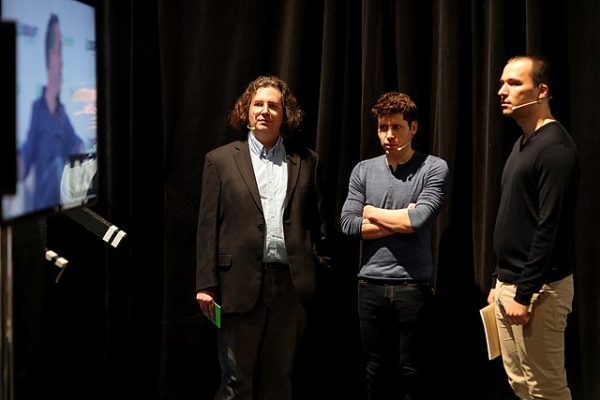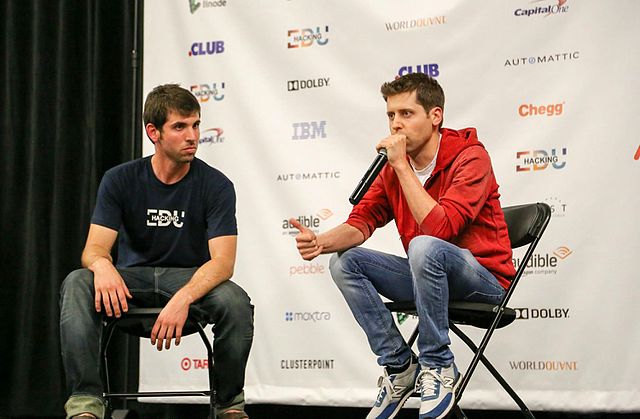On March 4th, 2024, Elon Musk announced that he was suing Sam Altman’s company, OpenAI. He alleged that the company, and Altman, had broken their contract by focusing its attention on the profitable future of its namesake product: ChatGPT. Musk argued that the company was founded on the altruistic principles of equality, protection, and above all fairness. To Musk, more than anything, Altman cozying up to Microsoft in a new partnership with OpenAI was the final straw. He is asking that the company return to non-profit status and officially end its contract with Microsoft.
From November 7th, 2023 to March 4th, 2024 OpenAI has had a rough few months. Notably, Altman was incredibly publicly ousted from his own company in the early days of November 2023. The saga began with a letter published by OpenAI’s board in which they wrote that they had “lost confidence in Sam Altman’s leadership” and that he had not been “consistently candid in his communications with the board.” Beyond that, no more explanation was given. The letter also informed the public that because Altman was so abruptly booted, the company’s CTO, Mira Murati, would serve as interim CEO as the board sought out a new CEO.
Quickly after the letter was published Altman took to Twitter, now X, to frame his own exit on his terms. He wrote “[My time at OpenAI] was transformative for me personally, and hopefully the world a little bit. Most of all, I loved working with such talented people. I will have more to say about what’s next, later.” He later followed up that night with a much more open message; he wrote that the public discussion felt like “reading your own eulogy while you’re still alive.” Initially, all the public reacted with was shock and anger. Altman was a founding member of the young company and had shepherded it through its biggest year yet. When onlookers discussed Altman, it was with glowing praise and near worship.
Information quickly began to come out that disrupted that narrative, however. OpenAI was initially founded as a non-profit organization focused on introducing artificial intelligence to the world in a meaningful and productive way. As such, the board was an eclectic and generally strange group for what was now the biggest company in tech. The group was made up of academics focused on philosophy and literature, philanthropists, and finally Musk himself. The group did not mesh well with their idealistic and sometimes harsh leader, Sam Altman.
In more specific terms, Altman often butted heads with board members Helen Toner and Ilya Sutskever. Toner, a member of the academic group based in Georgetown, would often argue that OpenAI should slow down rollouts for ChatGPT as, in her eyes, they had begun to cut corners. In fact, she went as far as to publish those misgivings in an essay where she praised competitors for a more humanitarian outlook on the technology and chided her own company for its fast and loose approach to AI. Altman argued that the essay would attract undeserved and unwanted attention from the FTC, or the Federal Trade Commission.

Sutskever reportedly was seen as the philosopher and deep mind behind the company. He was focused on the history that Altman had been leaving in his wake and often warned, as other board members did, that OpenAI was moving too fast. When Altman promoted a low-level researcher to the same position as Sutskever, their relationship worsened even more. Sutskever felt that the promotion was intended to undermine his own authority and worried that he was losing his influence within the upper echelons of the company. In the wake of the slight, he threatened to quit to other board members.
Overall, Altman’s background in tech informed an aggressive and often unpleasant demeanor that did not agree with the board. They found Altman unkind, disingenuous, and above all unwelcoming of feedback. The New Yorker reported back in December 2023, that the board dreaded interacting with Altman so much that it was eventually what spurred them into action on his removal. Charles Duhigg at The New Yorker writes that, “It was clear that, as soon as Sam knew, he’d do anything he could to undermine the board.” The vitriol and tension amongst the company all culminated on November 17th, 2023, when Sam Altman was shocked to realize he had been fired just five minutes before the public letter from the board was published.
However, just five days after the letter was published, on November 22nd, 2023, Altman was reinstated as the CEO of OpenAI. The board had gone back on their massive and very public decision, Altman was back. The embarrassing move was largely due to maneuvering on the part of Microsoft to effectively poach Altman and the rest of the company to craft their own version of OpenAI 2.0, entirely owned by Microsoft. In addition, just one day after the firing, employees of the company came together to sign a petition threatening mass desertion if Altman wasn’t reinstated.
As Altman began his public reinstatement, the vessels of the company reacted in entirely different ways. Lower level employees came together to rejoice on social media, tweeting out heart emojis paired with gifs and photos of Altman himself. However, some board members stood steadfast in their rejection of the former and now current CEO. They published grievances and accusations that Altman often was terse with associates and would assign the same task to two different employees to foster a competitive work culture. Notably, Sutskever reported that he had regret for the whole ordeal on X, writing “I deeply regret my participation in the board’s actions. I never intended to harm OpenAI.”
Currently, Altman is back on OpenAI, and the company is under a lawsuit from Elon Musk, who also now appears to be in legal trouble with X’s former employees over severance packages himself. The AI hype that was once a jetstream has appeared to cool into a slower trickle, especially in terms related to ChatGPT. In early July 2023, Stanford scientists found that in fact, with more human use, ChatGPT appeared to be losing some of its facilities, or in other words it was becoming less smart. Competitors have also flooded the market with easier and often more integrated products; services like Bard, Bing, and Claude have all claimed their little corner of the market, eating away at what ChatGPT could once call its own.
More than anything, this period seems to cap off a period of intense growth for the industry. While Sam Altman has been reinstated at the company, he is not without his limitations. Companies are turning their backs on their charismatic and often deeply unpersonable leaders. As Musk and Altman continue to argue that they have invented the key to ending global hunger, poverty, and disease, they will simultaneously be deeply reined in by the legal and fiduciary systems in which they exist and play within. Maybe the possibilities are not as unlimited as Altman might have hoped.
Altman is back on OpenAI and the company is under suit from Musk, who also now appears to be in legal trouble with X’s former employees over severance packages himself. The AI hype that was once a jetstream has appeared to cool into a slower trickle, especially in terms related to ChatGPT. In early July 2023, Stanford scientists found that in fact, with more human use, ChatGPT appeared to be losing some of its facilities, or in other words it was becoming less smart.

